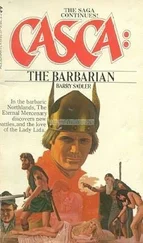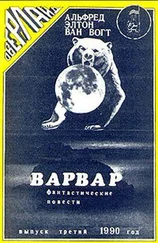Tsin che Hoang Ti, who had a bath of boiling water prepared in the Throne-room when one of his officers demanded an audience which displeased him, was the same emperor who had engraved stone tablets all over the place reading: ‘All is well. Weights and measures are standardized. Men are good husbands, parents are respected!
‘Wherever the wind blows, everybody is glad,’ etc.
On the other hand, in a theatrical piece, no matter what its subject every five minutes there is a scene where they take council. One would think oneself at a trial. And the actors come in saying: ‘I am so and so, I come from…, I am going to…,’ in order that there may be no confusion. To explain carefully, that is reasonable.

The Chinese detest us as cursed meddlers, who cannot keep our hands off anything. Ammunition, tinned food, missionaries, we have to throw our activities at their heads.
And so, what hatred, and, in the Extreme Orient, what jealousy too! And how can one appear innocent? But from having seen this hatred constantly turned on me, I was affected perhaps by it myself, in my attitude to them.

The Chinaman has the love of imitation carried to such a degree, submits himself so naturally to the model, that one is ill at ease. 6
This mania is so rooted in them that the Chinese philosophers have based almost their whole morality upon it, which is a morality of example .
The book of verses says:
‘The Prince, whose conduct is always full of equity and of wisdom, will see men from the four parts of the world imitate his uprightness. He accomplishes his duty as a father, as a son, as an elder brother, and as a younger brother and then people imitate him.’
There you are, you have done the trick! It is irresistible. Now everything is going to go like clockwork.
The Chinaman must have been amazed to see the European not imitating him. That is: he had a chance to be amazed. But a Chinaman would die rather than be amazed.
The current idea among Chinese art critics is that paintings must take the place of nature , that pictures should convey such a strong impression of it that the city-dweller need no longer take the trouble to go to the country, which, in fact, is what happens.
The sampans , on the river at Canton, are desperately bare, but there are always one or two pictures hung up inside.
In the worst Chinese hovels one sees pictures with wide horizons, with superb mountains.

An ancient Chinese philosopher, to encourage virtue, makes the following rather silly pronouncement, ‘that if the government of a small state is good, everyone (everyone who is Chinese, of course) will flock to it,’ and its power and prosperity will be augmented.
He knew his Chinese people, wise old Chinaman that he was.
The thing can still be verified today. Malaya has a stable and reliable government. The Chinese flock to it. There are two millions of them there. Singapore is a Chinese city. Malaya, a friend was saying to me, is a Chinese colony administered by the English.
Javanese trade is in the hands of the Chinese. In the tiniest villages, they have their shop.
In Borneo, or even in Bali, where the inhabitants keep to themselves and do not need anyone, some Chinese have managed to install themselves and to do business.
They tell us that Confucius and his disciples one day met a woman (I give you the story roughly)… They learn that her father has been swept away by a flood, her husband killed by a tiger, her brother bitten by a snake, and one of her sons involved in a misfortune of much the same type.
Then Confucius, disconcerted, says: ‘And you remain in a country such as this?’ (It was a small state in China that she could easily have left to go to another one.)
The woman then gives this charmingly Chinese reply: ‘The government here is not too bad!’
That is to say, in good English, that business was going well, that taxes were moderate.
Things like that root you to the spot. Confucius himself was wide-eyed when he heard it.

Do the Chinese ever see things on a large scale?
They are particularly good workers on little tasks.
They have been able to appear profound in politics on account of their pleasant principle of ‘Let it alone, everything will come out all right,’ which they keep for great matters.
But one notices that they go on exactly the opposite principle where smaller matters are concerned, leaving no stone unturned in order to succeed in arranging their own affairs, small or large, more often small.
They make plans, mark boundaries, arrange things in such a way as to have something to fall back on, set traps, and have always acted thus, because they have always liked to contrive.
Every creature is born with an idea, a principle that does not need to be proved, is generally far from being transcendental, and around which he assembles his notions… It is generally believed that the central, intimate idea of Confucius was one’s obligations to the family, to the prince and to wisdom. What do we know about it?
An idea, too essential, too intimate for him, for the Chinese to perceive, was used as a base by him constantly. It was perhaps that man was made for bargaining. 7
In the eighteenth century, a great Chinese author was racking his brains. He wanted an absolutely fantastic tale, breaking the laws of the world. What did he find? This: His hero, a sort of Gulliver, arrives in a country where the merchants were trying to sell things at ridiculously low prices, and where the customers were insisting on paying exorbitant prices . After that, the author believed he had shaken the foundations of the universe and of all the planets. 8Nothing so strange, thinks this Chinaman, exists anywhere in the world.

Among the characteristics common to all the peoples of the yellow races is their addiction to intoxicants.
One is apt to believe that it is opium that has done the harm, and that it might have been as well not to have the poppy in China to supply the opium, and consequently…
Opium has nothing to do with it.
Fifteen centuries ago the Chinese did not smoke. He was only a drunkard. He drank wine and rice alcohol.
Opium does not suffice with the Chinaman. He smokes tobacco. The women smoke. In the shops, in the street, and they throw away a cigarette only to take another one. Without a cigarette, obviously, they could not choose a stuff.
Japan is full of drunkards. They zigzag everywhere in the street.
The Burmese, at the age of four, smoke already, little girls as well as little boys, and not cigarettes, but big, dirty, strong cigars, ‘cheroots.’
The Indo-Chinese take opium.
The Koreans take opium and morphine.
The Chinese and the Japanese are fond of toys, of the artificial, of well-being, of lanterns, of artificial lighting, of dwarf or cardboard trees. They are nocturnal. Their cities are alive at night.
He has the peace that goes with drugs. Enjoys being without any motion, except when it’s hysterical, and likes to hear shrill sounds.
The Chinaman is not very sensual, yet at the same time he is very much so. But finely.
He has, so to speak, no ancient erotic literature. He is not disturbed by a woman, nor is a woman by a man. He is not even disturbed at the moment when everyone is disturbed. That is of no consequence. That leaves no trace. No, that does not stir his blood. Everything takes place in a springtime, fresh and still near to winter. If he has really a desire, it will be for a little girl still retaining the line of childhood, delicate and thin. He is not dirty. Obscene Chinese postcards are extremely witty. His music always has a transparent quality. He does not understand the heavy voluptuousness of the European, that warm thick tone of European voices, musical instruments and tales does not exist for him, he has none of the sickening sentimentality of the English or American, French or Viennese, that feeling of the long kiss, of stickiness, and of the submerging of self.
Читать дальше













